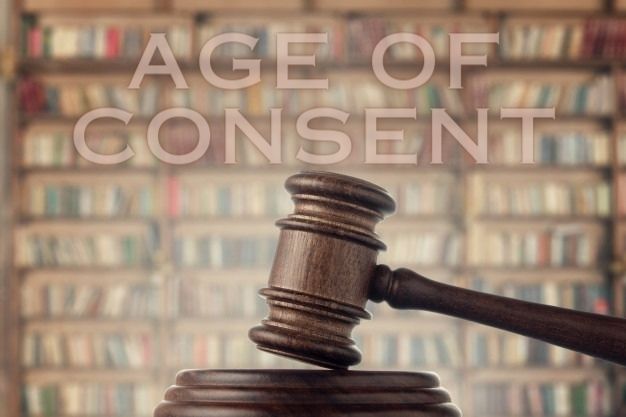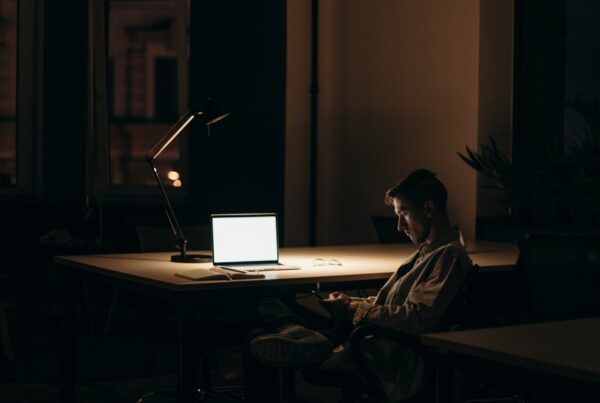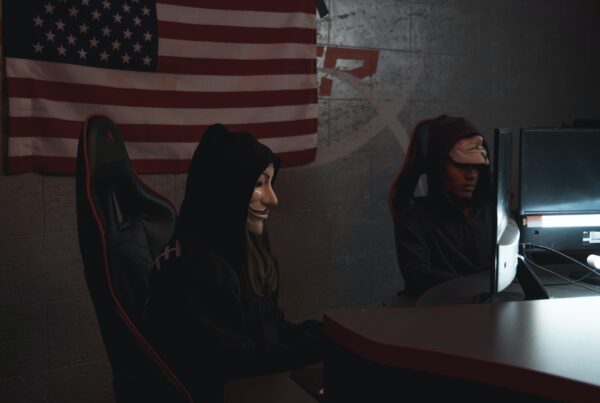INTRODUCTION
This article analyses the age of consent under the POCSO Act and its conflicting impact on consensual sexual relationships amongst adolescents and the mandatory reporting requirement under POCSO Act.
Mandatory Reporting of sexual acts involving a minor under the POCSO Act
The Protection of Children from Sexual Offences (POCSO) Act in India highlights the importance of mandatory reporting of sexual offences against children. Mandatory reporting as the word suggests entails that certain professionals, institutions, or individuals are legally obligated to compulsorily report any suspicion or knowledge of sexual offences involving minors ( children under the age of 18) to the appropriate authorities. There is no room for discretion.
Section 19 of the POCSO Act mandates reporting sexual offences against children. It stipulates that any who have information about the commission of a sexual offence against a child, must report it to the Special Juvenile Police Unit or the Local Police. Failure to report such offences can lead to criminal liability for the non-compliant individual.
Section 21 of POCSO enforces imprisonment up to 6 months, or fine, or both for individuals (except minors) who fail to report offences under sections 19 and 20 of the Act.
Moreover, there is an increased punishment for those in-charge of organizations such as academic institutions as per Section 21 (2), which reads as follows-
“Any person, being in-charge of any company or an institution (by whatever name called) who fails to report the commission of an offence under sub-section (1) of section 19 in respect of a subordinate under his control, shall be punished with imprisonment for a term which may extend to one year and with fine.”
Mandatory reporting is a critical tool in the fight against child sexual exploitation and abuse, allowing for timely intervention and support for the victims.
The mandatory reporting requirement of educational institutions, however, presents a challenging dichotomy. Administrators are obligated to report such relationships to the authorities, even if they believe it to be consensual, as failure to do so can result in severe penal consequences for the institution including imprisonment.
However as the law stands today the reporting requirement is mandatory is nature and no discretion may be exercised by persons including teachers, Head of Schools and School Administration,etc. as to whether a sexual relationship between the minors with apparent consent can be excluded. As of now it is only the Courts who may exercise this discretion as discussed below.
What is the age of consent?
The age of consent refers to the age at which a person is considered legally competent to consent to sexual acts. It is the minimum age that is required for an individual to consent and indulge in sexual relations/acts. In the year 2012, India raised the age of consent from 16 to 18 years
Legislative and Historical Background
Age of consent laws have been amended several times throughout the years as it was determined by the socio-economic conditions prevalent at a particular period of time.
In the year 1860, the Indian Penal Code had the age of consent as 10 years, irrespective of whether the girl was married or not. It was in 1889 when a 10-year-old girl named Phulmoni Dossee died in Kolkata as her much older husband tried to consummate the marriage. As a result of this and the public outcry that followed, the age of consent for sexual intercourse was raised to 12 years. In the year 1925, the age of consent was increased to 14 years with 13 years for rape within marriage. This was followed by another increase in the year 1949 wherein the age of consent was raised to 16 years with 15 years for marital rape.
The Protection of Children from Sexual Offences Act, ( POCSO) was enacted in the year 2012 to provide a robust legal framework for protection of children from offences of sexual assault, sexual harassment and child sexually abuse material ( CSAM) or pornography while safeguarding the interest of the child at every stage of the judicial process. Under the POCSO Act a child is any person below the age of 18 which meant that the age of consent under the POCSO Act is 18 years.
The recommended age of consent in the POCSO Bill 2011 was 16 years when it was first introduced in the Lok Sabha. The POCSO Bill, 2011 also recognized consensual sexual activity and a proviso to that effect was included for clause 3 which stated as follows- “Provided that where such penetrative sexual assault is committed against a child between sixteen to eighteen years of age, it shall be considered whether the consent for such an act has been obtained against the will of the child or the consent has been obtained by use of violence, force, threat to use force, intoxicants, drugs, impersonation, fraud, deceit, coercion, undue influence, threats, when the child is sleeping or unconscious or where the child does not have the capacity to understand the nature of the act or to resist it.”
However, the proviso was withdrawn due to concerns that such an exception would shift the focus on victim’s conduct during trial.
| Country | Age of Consent |
| India | 18 years |
| United States of America | 16 years |
| United Kingdom | 16 years |
| France | 15 years |
| Germany | 14 years |
| Japan | 13 years |
Age of consent around the world
Criminalization of Teen Sex
The POCSO Act of 2012 firmly establishes 18 as the age of consent for all sexual activities involving minors. Regardless of apparent consent or the nature of the relationship, any sexual encounter with a child under 18 is considered sexual assault under the Act. This stringent stance aims to shield minors from potential harm and acknowledges their inability to give informed and voluntary consent. However the direct impact of this has been blanket crminalization of consensual and non exploitative adolescent relationships. Most of such cases get filed if the girl has eloped or has become pregnant or when there is a strong opposition from the girls family for the relationship and hence invariably suhc cases result in acquital. However the criminla trial undemines their dignity , liberty, privacy, reputation and self esteem which may result in scarring for life.
What are Romeo Juliet Laws
Romeo and Juliet laws, also known as close-in-age exemption laws or as age of consent exceptions, are designed to address situations where teenagers engage in consensual sexual activity with each other, even though one or both participants may be below the age of consent. The rationale behind introducing these laws is to recognize that consensual relationships between peers of similar age pose a lower risk of coercion or exploitation. As a result, the provisions ensure that states either do not criminalize such conduct at all or punish it less severely than relationships involving adults and minors. These laws aim to either decriminalize such conduct altogether or punish it less severely than relationships involving adults and minors and to reduce or eliminate the criminal penalty in cases where the age difference between the participants is minor and the sexual contact would not have been considered statutory rape if both partners were legally able to give consent. However, it is important to note that this exemption does not apply when the older person holds a position of authority over the younger individual. In such relationships, any sexual activity with someone under 18 in such cases is considered a criminal offense.
The Romeo and Juliet laws or the Age of Consent exceptions exist in the US, Canada, UK, Germany and Italy.
Romeo Juliet Laws in India Context
Romeo Juliet laws DO NOT exist in India
There is no close-in-age exemption in the POCSO ACT and that means that any sexual relationship between two underage people or between an older partner and an underage person is considered sexual assault, sexual harassment or statutory rape.
The absence of these exceptions have made normal developmental processes such as exploring romantic relationships or one’s sexuality become unlawful acts.
A study based on judgments from the Mumbai Sessions Court at Greater Mumbai and Dindoshi Court in 2019, under the Protection of Children from Sexual Offences (POCSO) Act, revealed that out of a total of 59 cases, 33 cases (56%) were related to “romantic relationships.”
Further, a study conducted by the National Law School of India University’s (NLSIU) Centre for Child and the Law showed the prevalence of cases revolving around romantic relationships in different states. The findings of the study have been shown in the table below:
| PLACE | PERCENTAGE OF CASES CONCERNING “ROMANTIC RELATIONSHIPS” |
| Delhi | 21.58% |
| Andhra Pradesh | 21.21% |
| Maharashtra | 20.25% |
| Assam | 15.69% |
| Karnataka | 5.45% |
Several experts and organizations have called for the introduction of a close-in-age exemption in India to address these issues effectively. A close-in-age exemption would allow for consensual relationships between adolescents to be treated differently from cases involving coercion or abuse.The National Commission for the Protection of Child Rights (NCPCR) has suggested that such an exemption should include:
(a) consensual non-penetrative sexual acts between two children above the age of 12 years, sharing the same age or having a two-year age gap, and
(b) consensual penetrative sexual acts between children above 14 years, who are of the same age or have a three-year age gap.
In December 2022, the Chief Justice of India, D Y Chandrachud, during his keynote address at the National Annual Stakeholders Consultation on Child Protection, acknowledged that the POCSO Act treats all sexual activity involving individuals under the age of 18 as a crime, regardless of whether there is factual consent between the two minors in a specific case and called for an investigation into the “growing concern” regarding the criminalization of adolescents involved in consensual sexual activity under the POCSO Act. CJI, Justice DY Chandrachud, called on the Parliament to reconsider the age of consent for sexual activity under the POCSO Act.
While dismissing the proceedings in a criminal case against the accused for offences under Sections 3(a) and 4 of the POCSO Act, the Meghalaya High Court referred to the case of Vijayalakshmi v. State, of the Madras High Court, where it was observed that “upon examining the statement of Objects and Reasons of the POCSO Act, it becomes clear that the Act was enacted to protect children from sexual assault, harassment, and pornography, under Article 15 of the Constitution of India and the Convention on the Rights of the Child. However, many cases filed under the POCSO Act appear to be based on complaints lodged by families of adolescents and teenagers involved in romantic relationships. The Act’s scheme indicates that it was not intended to encompass cases involving adolescents or teenagers in consensual romantic relationships.” . The Madras High Court further observed that the use of the POCSO Act could lead to irreversible damage to the reputation and livelihood of youth whose actions were only a consequence of “biological attraction” and questioned the wisdom of criminalizing such acts.
The Gwalior bench of the Madhya Pradesh High Court has also recommended that the Government of India consider reducing the age of consent under the Protection of Children from Sexual Offences Act (POCSO Act). This recommendation was made during the hearing of a petition filed by a 17-year-old boy charged under the POCSO Act based on a complaint by a 14-year-old girl. Justice Deepak Kumar Agarwal of the High Court termed it an injustice to boys and requested the government to lower the age of consent to 16 years. The Court emphasized that due to early puberty and increased awareness through social media and internet connectivity, teenagers near 14 develop physical relationships with consent. However, they are treated as criminals solely because of their age.
In the case of SABARI V. INSPECTOR OF POLICE and the case of AGAVAI V. THE STATE , the Madras High Court observed that the issue of consensual sex between minors is a legal grey area in India and concluded that, “punishing the minor boy who enters into a relationship with a minor girl who were in the grips of their hormones and biological changes which is otherwise normative development in the children, is against the principles of the best interest of the child.”. The Madras High Court also suggested lowering the consent age to 16 or excluding consensual relationships between teenagers aged 16 to 18 from the purview of the POCSO Act and reiterated that cases of consensual adolescent sex must be identified and separated from genuine abuse cases, and the former kind must be quashed if proceedings are found to be against the adolescents’ interests. According to the HC, an overlooked aspect of criminalizing consensual teen sex is its impact on family dynamics.
The Supreme Court in the case of S. VARADARAJAN stated “She was not a child of tender years who was unable to think for herself but, as already stated, was on the verge of attaining majority and was capable of knowing what was good and what was bad for her. She was no uneducated or unsophisticated village girl but a senior college student who had probably all her life lived in a modern city and was thus far more capable of thinking for herself and acting on her own than perhaps an unlettered girl hailing from a rural area.”
The Supreme Court in the case of ANOOP observed that “Unfortunately, the statute does not distinguish between the conservative concept of the term “rape” and the “sexual interactions” arising out of pure affection and biological changes. The statutes do not contemplate the biological inquisitiveness of adolescence and treat all “intrusions” on bodily autonomy, whether by consent or otherwise, as rape for certain age group of victims….Prosecuting and sentencing a person found to have engaged in consensual sexual intercourse with a sixteen or seventeen-year-old to a minimum sentence of ten years or twenty years is contrary to the principle of proportionality.”
References :
- X v. Principal Secretary, Health & Family Welfare Department, Civil Appeal No. 5802 of 2022 (Arising out of SLP (C) No. 12612 of 2022)
- N V. PRINCIPAL SECRETARY, HEALTH & FAMILY WELFARE DEPARTMENT, DELHI HCW.P.(C) 291/2023 AND CM APPL. 1161/2023
- S. VARADARAJAN CASE, AIR 1965 SC 942, MANU/SC/0081/1964, PP. 944-45, PARA 7).
- ANOOP v. KERALA BAIL APPL. NO. 3273 OF 2022 PARA 2)
- Vijayalakshmi & Anr. v. State Rep. By. Inspector of Police, All Women Police Station, Erode: Crl. O.P No. 232 of 2021 para 12 & 18.
- SABARI V. INSPECTOR OF POLICE Criminal Appeal No.490 of 2018 Ajithkumar v. State, 2022 SCC OnLine Mad 1961
By- Vaishali Bhagwat, Advocate
Amruta Nerlikar & Ilina Devadhar




